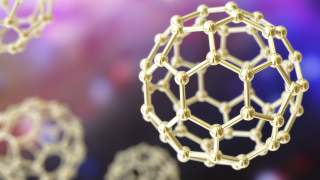Developing and Demonstrating Nanosensor Technology to Detect, Monitor, and Degrade Pollutants Grant

EPA awarded over $1.3 million in funding to a team of researchers from the University of Wisconsin-Madison to develop nanosensor technology to detect, monitor and degrade commonly used pesticides, found in water, that can harm human health.
Environmental pollutants such as pesticides adversely affect human health, even at low concentrations. Reliable and simple sensors are essential to empower communities, state and local governments, tribes, and others to collect data on their environment. Nanotechnology can fulfill this need as well as assist in the degradation of these pesticides.
Nanosensors (made with materials between approximately 1 and 100 nanometers) can detect a wide variety of pesticides at low concentrations while also being cost-effective and portable. Nanomaterials can also improve the efficiency of capturing and degrading pesticides in air, water and soil compared to traditional methods.
The goals of this research grant is to develop reliable and easy to operate nanosensor technology that can monitor and detect pesticides linked to adverse health outcomes in real time. This research integrates nanosensors with a nanotechnology-based treatment process to render pesticides harmless through removal or degradation. Results are expected to be applied in a real-world setting and have the potential to transform environmental monitoring and management.
The following applicant is receiving an award:
University of Wisconsin-Madison, Madison, Wisconsin
Project Title: Integrated Portable Raman and Electrochemical NanoSystem (I-PRENS) for Neonicotinoid Detection and Remediation in Rural Drinking Water Supplies
Principal Investigator: Haoran Wei
Award Amount: $1,362,435
Project Summary: This project aims to develop an Integrated Portable Raman and Electrochemical NanoSystem (I-PRENS) to detect and degrade neonicotinoid pesticides in drinking water supplies in rural Alabama. Neonicotinoids are commonly used pesticides similar to nicotine, but they have devastating impacts on pollinators and other beneficial organisms. The I-PRENS will allow for the first chemical supply-free, sensor-controlled water treatment system that can be distributed and deployed anywhere. The team will develop modules for high-resolution and rapid sensing, pre-treatment, and treatment of neonicotinoid pesticides. The team will also develop a small-scale I-PRENS prototype for deployment in Alabama’s Black Belt region for long-term monitoring and remediation of neonicotinoid-impacted drinking water supplies.
Learn more about this award and view the research abstract for this project.
